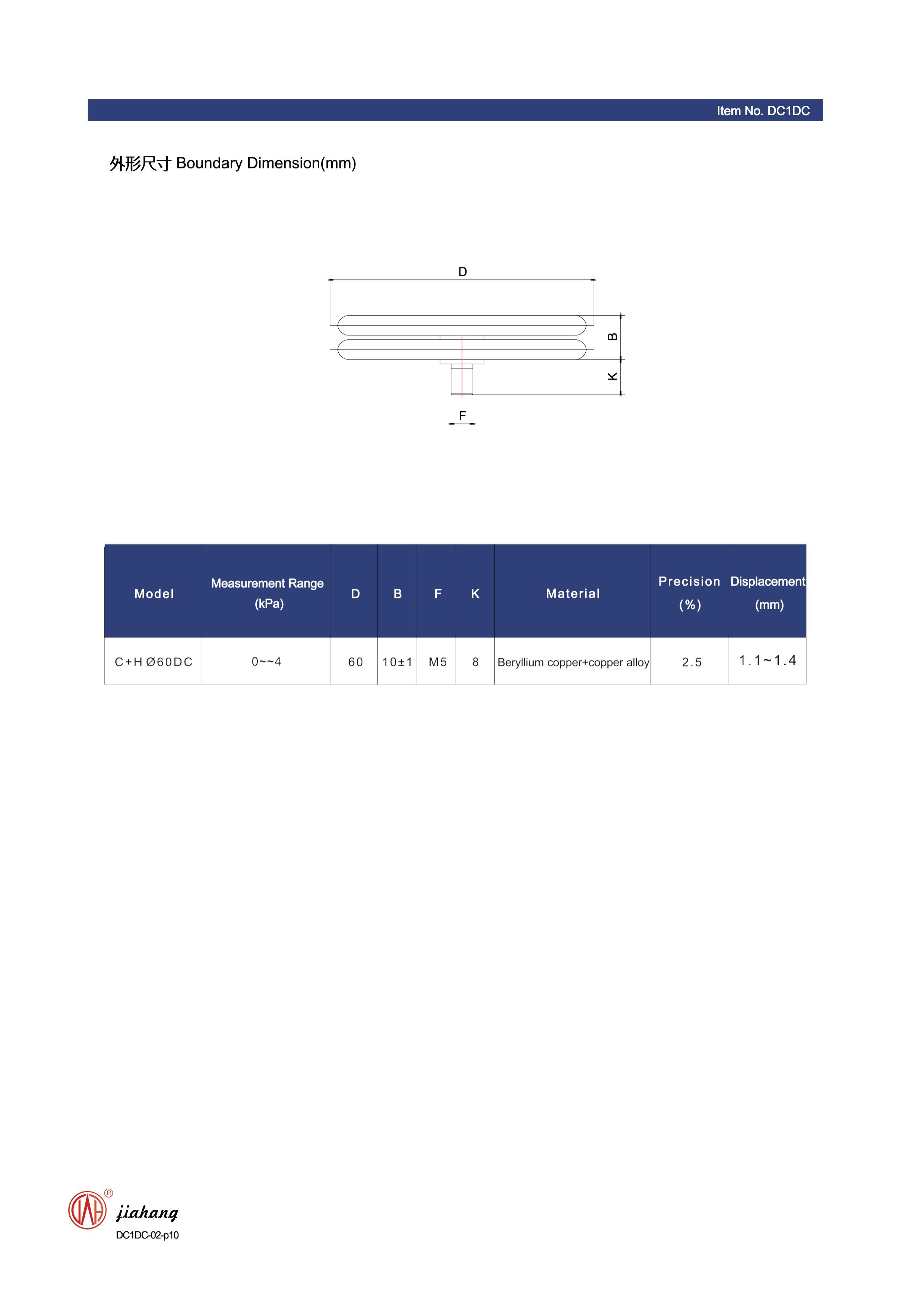
sie . 11, 2024 03:14 Back to list
Factory Overview of Differential Pressure Gauges for Refrigeration Applications and Their Importance
Understanding Refrigeration Differential Pressure Gauge A Comprehensive Overview
In the realm of refrigeration systems, ensuring optimal performance and efficiency is paramount. One crucial tool that plays a significant role in maintaining these systems is the differential pressure gauge. This article delves into the importance of refrigeration differential pressure gauges, their functionality, and their applications within various industries.
What is a Differential Pressure Gauge?
A differential pressure gauge is an instrument designed to measure the difference in pressure between two points in a system. In refrigeration, it typically measures the pressure difference across components such as filters, evaporators, and condensers. This measurement is vital because it indicates the operational health of the refrigeration system, revealing how well the system is performing and identifying any potential issues that may arise.
Importance in Refrigeration Systems
Refrigeration systems rely on precise pressure management to function effectively. A differential pressure gauge provides critical data that helps technicians and engineers monitor and control the system’s performance. By measuring the pressure differential, it offers insights into various scenarios
1. System Efficiency A significant variation in pressure readings can indicate reduced efficiency in the system. For instance, if the pressure drop across a filter is higher than normal, it might suggest that the filter is clogged, which can lead to increased energy consumption and decreased cooling performance.
2. Maintenance Indicators Regular monitoring of pressure differentials aids in preventive maintenance. Technicians can set baselines for normal operating ranges and quickly identify abnormal readings that may suggest impending failures. This proactive approach can extend the life of the equipment and minimize operational interruptions.
3. Health and Safety Monitoring pressure differentials in refrigeration systems is not only about efficiency; it also concerns safety. An abnormal pressure reading may indicate a potential leak or failure in the system, which could lead to dangerous situations, including refrigerant leakages or equipment damage.
Applications Across Industries
Refrigeration differential pressure gauges are widely utilized across various sectors that rely on refrigeration and cooling systems. Some key industries include
refrigeration differential pressure gauge factory

- Food and Beverage In the food industry, maintaining specific temperatures is crucial to prevent spoilage. Differential pressure gauges help monitor refrigeration systems in storage facilities, ensuring consistent cooling and compliance with health regulations.
- Pharmaceuticals The pharmaceutical industry requires strict adherence to temperature controls to preserve the efficacy of medications and vaccines. Differential pressure gauges provide critical data to ensure that refrigeration systems operate within the required specifications.
- HVAC Systems In heating, ventilation, and air conditioning (HVAC) systems, these gauges help in monitoring air flow and pressure in ductwork, ensuring efficient operation and comfort within commercial and residential buildings.
Characteristics of Quality Differential Pressure Gauges
When selecting a differential pressure gauge for refrigeration applications, several characteristics must be considered
- Accuracy High precision is essential for effective monitoring and problem detection.
- Durability Gauges must withstand various environmental factors, including temperature fluctuations and potential refrigerant exposure.
- Ease of installation and readability A user-friendly design facilitates easier monitoring and minimizes the risk of operational errors.
Conclusion
Refrigeration differential pressure gauges play a vital role in maintaining the health and efficiency of refrigeration systems. By providing critical insights into system performance, they help industries ensure safety, compliance, and optimal operation. Understanding and utilizing these gauges effectively can lead to significant cost savings and enhanced reliability of refrigeration systems across various applications. As technology continues to evolve, advancements in differential pressure gauge design and functionality will undoubtedly enhance their importance in this crucial field.
-
High-Precision 5 Valve Manifold Differential Pressure Gauge Suppliers
NewsApr.29,2025
-
High-Precision Diaphragm Vacuum Pressure Gauges Manufacturers & Quotes
NewsApr.29,2025
-
Omega Differential Pressure Gauges High Accuracy & Durability
NewsApr.28,2025
-
Low Pressure Differential Pressure Gauges Precision Solutions & Quotes
NewsApr.28,2025
-
Digital Diaphragm Pressure Gaauge Precision Measurement & OEM Quotes
NewsApr.28,2025
-
Differential Pressure Gauge China Price High-Accuracy & Best Quotes
NewsApr.28,2025
